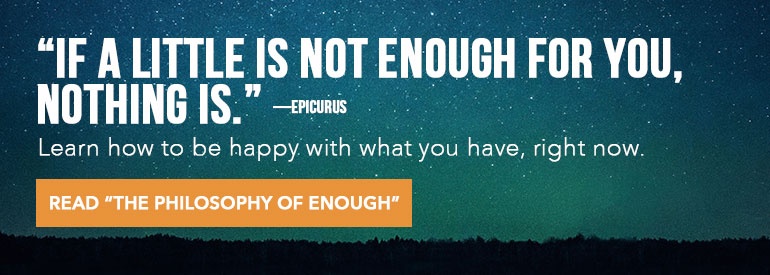 Reading Time: 6 minutes
Reading Time: 6 minutesGiven the marketing hype around Valentine’s Day each year, you could be forgiven for thinking relationships are meant to resemble the elaborately-worded greeting cards, floral arrangements, decadent delights, sparkling jewelry, and gushes of romanticism we see in the media.
For this reason, many people eschew Valentine’s Day and dismiss it as a ploy to sell more stuff. Perhaps they’re right — the commercialization of Valentine’s Day does seem to grow each year. But whether you view Valentine’s Day as a time for romance and grand gestures or ignore the occasion completely is up to you. I’m not here to change your opinion.
What I do believe, though, is that Valentine’s Day offers us the rare opportunity to think about what love means to us and what we want from a relationship.
We All Know Love Isn’t Easy
The truth is, love can be difficult. There may be times when the frustration, heartache, and confusion caused by relationships overwhelms you. Particularly in long-term relationships, problems such as infidelity, financial issues, jealousy, anger, poor communication skills, and competing priorities can threaten to derail even the strongest of bonds.

Further, if we don’t take the time to look after our relationship health, it can begin to affect the rest of our lives. The emotional lows, arguments, blaming, and misunderstandings can make us more distracted at work, drain our energy reserves, increase our stress levels, reduce our enjoyment of social occasions, and negatively affect our physical well-being — particularly if we resort to coping strategies like emotional eating, excess alcohol consumption, over-work, or over-exercising.
While tough times in a relationship may be unavoidable, there are ways to reduce the emotional impact and increase the likelihood of a positive resolution. Not every problem is a deal breaker. Sometimes, all it takes is a little communication, an open mind, and an honest approach.
Time for a Relationship Health Check
So, this Valentine’s Day, take this opportunity to check in with your relationship. Think of it as an emotional health check: for yourself, your partner, and your relationship.
You may wish to involve your partner in the process, or you may prefer to focus on yourself first. And for those not in a relationship, this is the perfect time to learn a bit more about yourself and what you can bring to your next relationship.
Above all, approach the process with a curious mind and genuine interest. There are no wrong or right answers and there is no room for judgment. In other words, stay open and keep it light.

What Is Love?
I can almost guarantee that if you ask your partner, friends and family what love is, you’ll get a myriad of responses.
Love can mean many things to many people. From that giddy feeling of love at first sight, to the challenges of navigating heartaches, sorrows, and break-ups, to growing old together. Some people believe love is for life with one person, others believe love has a natural use-by date, while some believe having a relationship is not necessary to bring personal fulfillment.
There’s no right or wrong with these beliefs. The key is to understand what you believe love to be. Understanding this can help you navigate future relationship obstacles while learning more about yourself.
So, what does “love” mean to you? How do you define it? What feelings, emotions, behaviors, and actions do you associate with it?

Understand Your Expectations
Once you have a clear insight into what love means to you, we can expand this into an understanding of your expectations.
Knowing your expectations of a relationship – and of your partner – is important in ensuring you’re both on the same page. If you have unrealistic or unreasonable expectations of your partner, or they have unrealistic expectations of you, then the relationship is likely to be a bumpy ride. It’s possible you’ll both end up feeling frustrated and let down by the other person.
So, as part of your relationship health check-up, ask yourself:
- What do you want out of a relationship?
- What are you willing to put into a relationship?
- What goals and values are important to you?
- How do you show love to others? How do you like to be shown love?
- How do you communicate with others? How do you like to be communicated with?
- How much attention do you want from your partner? How much attention do you want to give?
- What are your desires for the future?
- Do you have non-negotiables (such as marriage, owning a house, having children, being a stay-at-home or working parent)?
Where Are We Now?
A useful way to stay on track in a relationship — and to make sure the good stuff keeps happening — is to check your progress. Figuring out where your relationship health is now, along with what works well and what doesn’t, will help you and your partner remain fulfilled and committed. Below are some questions that can help you stay on track.
Tip: Try writing down your responses and have your partner do the same, then share your answers.
- What’s your relationship like at the moment?
- How important to you is your relationship?
- What do you want your relationship to be?
- What’s going well in your relationship right now?
- Is there anything you’d like to improve about your relationship?
- What things cause friction or conflict in your relationship?
- Is there anything you could do differently to help your relationship?
- Do you feel any resistance to making this change?
- Could you communicate these feelings to your partner?
Pay Attention
Fulfilling relationships, like most important things, require consistent attention and adjustment. It takes time and patience to build trust and nurture a loving relationship. It also means paying attention to our partners and not taking them for granted.
One of the simplest ways to do this is to schedule quality time together — alone, regularly, and without interruption. Like a date. These times together are invaluable because they promote communication, which is a vital component of any good relationship.
Removing the distractions of everyday life means you’re more likely to talk about what’s important to you and what’s going on in your mind. This has the added benefits of reducing stress, enhancing empathy, and strengthening connections. It also builds your attachment and commitment to each other.

Try setting up regular date nights, weekends away, start a hobby together, watch your favorite movies together, go for afternoon walks or Sunday drives, or simply share a cup of tea after dinner. It can be any activity that helps you spend regular time together. Remember, these activities don’t need to be expensive or complicated — sometimes the simpler the activity is, the more relaxed both of you will feel.
Do Valentine’s Day Your Way
If you’re a hopeless romantic and love everything that Valentine’s Day represents, embrace the occasion and enjoy it. If you’re more of a Valentine’s Day skeptic, that’s okay too — do the day your own way.
Regardless of your view on Valentine’s Day, use it as an opportunity to check in with yourself, understand what you want out of a relationship, acknowledge how you and your partner are feeling, and schedule in some quality time together.
Have some fun with it, keep it light, and remember why you fell in love with your partner in the first place.









